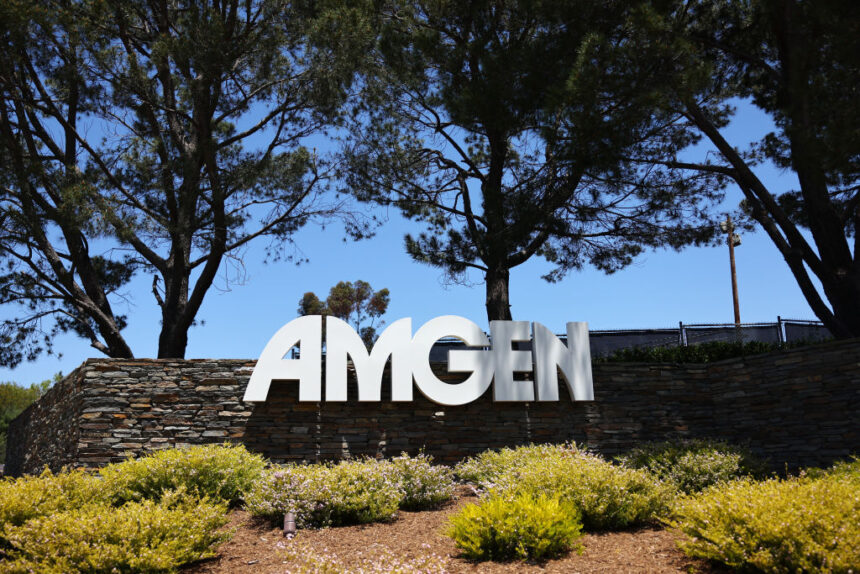Amgen and Gilead Sciences both reported topline growth during a busy quarter, according to financial filings released this week.
For Amgen, total revenues increased 6% to $7 billion thanks to 6% growth in product sales. The pharma giant had an 11% growth in volume due to double-digit growth in products like Evenity, Lumakras and Amjevita, among others.
Increased revenues and decreased expenses boosted Amgen’s earnings per share (EPS) 5% from $2.45 to $2.57. Free cash flow also increased from $1.7 billion this time last year to $3.8 billion.
Going forward, Amgen expects total revenues in the range of $26.6 billion to $27.4 billion, along with an EPS in the range of $14.30 to $15.41. The company said it does not expect its share repurchases to exceed $500 million.
“We had a very strong quarter, serving more patients across all geographies and therapeutic categories and delivering record revenues and non-GAAP earnings per share,” Amgen CEO Robert A. Bradway said in a statement. “Positive data being shared today illustrates the rapid progress we are making in advancing our pipeline of potential first-in-class medicines.”
Despite the strong quarterly performance, Amgen faced setbacks in Washington, D.C.
In mid-May, the Federal Trade Commission sued Amgen to block its $27.8 billion acquisition of Horizon Therapeutics, citing “rampant consolidation” in the pharmaceutical industry. Amgen pushed back on the notion that the merger would lead to the company bundling its medicines cross-market.
In its earnings report, Amgen stated that it still expects to close the Horizon merger by mid-December.
Days later, the Supreme Court unanimously ruled in favor of Sanofi in a patent case against Amgen regarding the intellectual property rights for a PCSK9-inhibiting cholesterol drug.
Outside of its regulatory challenges, Amgen also announced a collaboration where it will pay TScan Therapeutics $30 million up front, with the potential for $500 million in preclinical, clinical, regulatory and commercial milestone payments.
Meanwhile, Gilead’s total revenues jumped 5% to $6.6 billion during the quarter. The company benefited from increased sales of HIV and oncology products but suffered from lower sales of Veklury (remdesivir).
Gilead’s liver disease portfolio also increased 4% during the quarter while cell therapy product sales increased 27% to $469 million.
Additionally, Gilead’s EPS dropped from $0.91 to $0.83, largely due to what the company called a $525 million “litigation accrual for settlements with certain plaintiffs in the HIV antitrust litigation.”
Like other drugmakers, Gilead was active in the M&A space during the quarter.
In early May, Gilead acquired XinThera in an effort to bolster its oncology and inflammation pipeline with its portfolio of two small molecule inhibitor programs.
“It was another strong quarter for Gilead, with continued commercial and clinical momentum,” Gilead CEO Daniel O’Day said in a statement. “11% year-over-year growth across our base business was driven by our diverse portfolio of therapies for HIV, Oncology, and Liver Disease. We received positive regulatory updates for six of our therapies and presented a large body of data on our pipeline, reinforcing our growing potential to help more patients and communities worldwide.”







